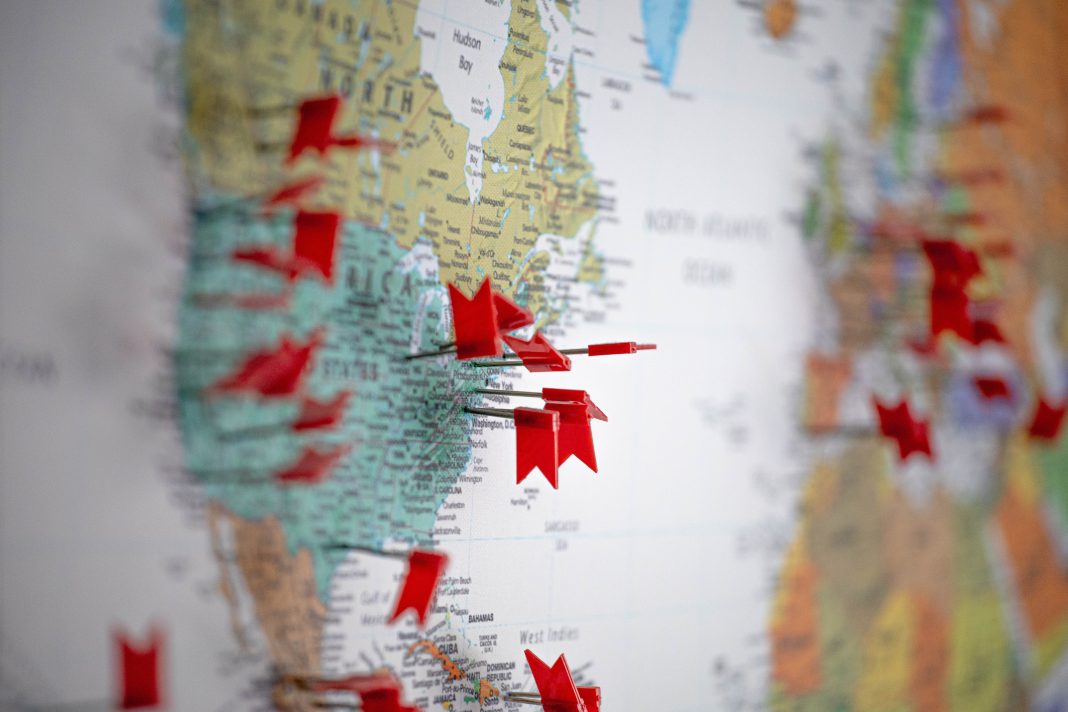This article appeared first on the Italian website of the Atlas of Wars on september 18, 2021. It was written by our Director, Italian journalist Raffaele Crocco.
 The news we received in September 2021 are signals of one, greater message: the world is changing: And fast, faster than we thought. Strategies, balances, alliances change.
The news we received in September 2021 are signals of one, greater message: the world is changing: And fast, faster than we thought. Strategies, balances, alliances change.
Just three moves have taken us elsewhere in the geopolitical scenario: the abandonment of Afghanistan by the US and the Europeans, the advancement of the project for a future European army, the announcement of the Anglo-Saxon alliance called Aukus.
Let us illustrate why these three changes have changed our world scenario and how:
- The flight from Afghanistan made it clear to the world that the United States now play in defense: they cannot be and cannot try to be the global gendarmes. The US gave up Central Asia, which in their eyes was useful for setting up permanent military bases in the backyard of enemies such as Russia and especially China. the US’ military presence in the region also blocked Beijing’s land traffic and controlled Turkish expansionism in the area. By returning home, and returning Kabul to those who had it, that is, the Taliban, Washington officials are thinking of a new strategy: one of land control from the sea. The plan is to reposition the fleets and, above all, aim to control the Pacific. It is the old gunboat policy: it worked for them in the early 1900s.
- Precisely this choice led to the announcement of Aukus, the US’ strategic alliance with Australia and the United Kingdom, created for the control of the ocean. Focusing on Australia was obvious: the Pacific country has been at loggerheads with China for months. Canberra has explicitly accused Beijing of being responsible for the Covid19 pandemic, calling for an international investigation. For quite some time, then, within the chancelleries and intelligence agencies, talk of the possible birth of a “Pacific pole”, led by Australia and New Zealand, not bound to the USA and Europe. In reality, such a project was an impossible dream. Australia is linked to China by enormous trade ties: the only way to independence from Beijing runs, for Australia, through the support offered by Washington and London.
- The Aukus is a military and militarized alliance, in the sense that the two most powerful allies will help Australia build a nuclear submarine fleet. That amounts to several billion dollars of investment: a move that has angered Beijing, which knows very well that nuclear submarines are not used for defensive purposes, but to attack. Paris was also unhappy with the deal: France had a multi-billion dollar order – apparently the most important in the history of the French military industry – precisely for the construction of conventional submarines. All gone now: in the AUKUS pact, weapons and equipment are only to be bought between allies.
- It is no coincidence that the new Pacific alliance was officially born a few hours after the announcement of the first embryo project for a European army: the constitution of a brigade of six thousand men – armed and efficient – able to intervene quickly where needed . Now, this has sparked a discussion: what relationship will this new Armed Force have with NATO? The Atlantic Alliance, on the other hand, appears to be nothing short of “decoction”: it has failed in the Near East, it no longer has the Soviet Union as its enemy and has not yet found another equally credible. In addition, it operates mainly in Europe, a political-economic scenario of little interest for Washington. The enemies are elsewhere for the US: precisely, in the Pacific. Thus, the AUKUS appears to be the creature destined to replace NATO in the destinies and desires of the United States.
- Meanwhile, the European Army project goes on. An emergency force, as depicted for now, strongly armed and autonomous, with navy and air force. The idea fascinates many. It would be proof that the European Union is willing to take a step forward in its common foreign policy, in its often-announced shared objectives. The project, though, scares many others. The questions are many: how would it be used? Would it return to a strong militarization of the Old Continent? Who would command it and with what mandate? Would it become a defensive force, or an army for intervention, to safeguard European interests wherever they are? As of now the answers are not there.
You see it. The world has changed in just three moves, leaving too many questions pending. There is – to add – the curiosity of AUKUS as an exclusive “English-speaking” alliance: it could be a coincidence, but who knows. The sure thing is one, always the same: for those who manufacture and sell weapons, these will be wonderful years. The great run-up to rearmament has just begun. The protagonists have all risen up. The big, new, game can begin.
























